29-31 October 2019, Cartagena
We are attending TOC Americas – if you would like to meet with us there to discuss your unique cargo challenges, get in touch at info@jadelogistics-asia.com

We are attending TOC Americas – if you would like to meet with us there to discuss your unique cargo challenges, get in touch at info@jadelogistics-asia.com

By Rebecca Rowley, Solutions Architect, Jade Logistics
With the constantly evolving landscape of terminal operating systems and their role within wider supply chain management, Jade Logistics has recently reviewed their API offering to ensure it continues to support easy and cost-effective integration with third party systems and excellent performance at scale.
The increase in demand for agile application development — providing applications which can be built quickly to explore new ideas, ways of working and growth opportunities — paves the way for an integration strategy that provides clear, concise APIs that require little system knowledge, have a low maintenance burden, are easily extendable and simple to interact with.
EDI continues to be a staple of the logistics industry and Master Terminal’s existing capabilities in this area are an important aspect of the TOS solution. As well as FTP drop and operator upload, the Master Terminal SOAP web service supports EDI data transfer via a SOAP interface and this existing web service will be maintained. This mechanism works well for this type of data transfer and is already a standalone web service endpoint which does not require frequent definition updates, and as such requires little support beyond the initial integration development.
An increasingly important area of data for port operators is real-time, event-driven updates. Jade Logistics will continue to use, and further enhance, the Event Stream framework for event driven data transfer direct from Master Terminal. As this data is driven from the existing SQL extract mappings, it is an ideal interface to provide information into a data warehouse for targeted, customer specific, BI analysis.
For data integration beyond the port environment and into the wider supply chain, Master Terminal integrates directly with CargoChain. This ensures information about cargo and its movements generated at the terminal is available to all supply chain participants, eliminating the need for complex point-to-point data sharing and providing one integrated view of cargo. Third-party applications can take advantage of this by using CargoChain to redefine the global information supply chain, safe in the knowledge that the relevant Master Terminal activity will be captured by CargoChain.
Master Terminal currently exposes a user interface SOAP web service, which will continue to be supported and used by both Jade Logistics applications and third parties. However, in the future new integrations will be supported by REST web services.
The Master Terminal REST API suite is designed with the single responsibility principle at its heart; specific interfaces are responsible for single functions, producing loosely-coupled modular systems with scope for extension without impacting existing services. This reduces the maintenance burden and provides an uninterrupted API service for third parties, removing barriers to upgrade.
The Master Terminal REST API suite supports both JSON and XML data output enabling easy integration. In keeping with the separation of concerns principle, only the object data relating to a specific interface is transferred. This reduces the size of data transmitted as well as providing a clear and concise interface. Where as the existing SOAP Web service data objects are tightly coupled to the Master Terminal implementation, this is decoupled in the REST APIs providing a user-friendly interface requiring less system knowledge to integrate.
At Jade Logistics, we appreciate that every port is unique, with different workflows and handling procedures. Customers with specific and unique integration requirements, for example to assist in implementing custom applications for terminal functions, will have a specific REST API developed to meet their needs. This can be used in conjunction with the Master Terminal REST APIs to provide the functional coverage required to build a bespoke application.
It is important to Jade Logistics that port operators can choose the third-party applications on the periphery of their TOS (such as an external VBS System) that work best for their business, while still being able to easily integrate these systems with Master Terminal. The Master Terminal REST API suite includes generic interfaces for commonly required functions. If additional feature support is required, an application specific interface can be developed with little overhead.
MASTER TERMINAL API OFFERING

WHY REST?
REST interfaces now represent more than 70% of public APIs. This popularity is because REST, with JSON data, is simpler to interact with and faster to integrate to. Highly extendable, flexible and fast, REST is ideal for APIs in today’s agile environment.
The size of a REST API call and data transmission is significantly smaller than a SOAP request. This improves performance and requires less bandwidth, reducing load on the system. REST calls are lightweight and simple, allowing easy, quick calls to a URL for fast return responses.
REST inherently supports a variety of data formats, but the predominant use of JSON means better support for browser clients. JSON data is easily serialized into application specific objects without the need for a full service definition and intermediary proxy classes. This greatly simplifies the development required to interact with the client interface as well as removing the need to update a previous definition when changes are made, providing backwards compatibility.
Because REST is stateless, the same request can be made multiple times with the same response. This is ideal for mobile applications, allowing the process to be retried without major interruption in case connectivity is lost, as well as supporting caching of the results.
With REST web services, the client and server are loosely coupled. This means the server (i.e. the web service provider) can extend or modify the exposed interfaces without impacting the client (i.e. the application calling the web service). This is in stark contrast with SOAP web services, where the published API (web service definition) must be kept in sync and any changes must be made by both the client and server at the same time. This is a significant barrier to continuing enhancements and agile development.
If you would like to learn more about our TOS, Master Terminal, please contact us.

All ports face a digital transformation. It’s not a matter of if, but when. The maritime ecosystem is growing, players are changing, cargo volumes are increasing and customers are demanding better service and efficiency. The only way for ports to survive this transforming environment is to grow along with it. The greatest influencer of this transformation is technology, so it’s not surprising that the number one prediction for the shipping supply chain in 2019 is more budget allocated to IT spend, according to the Navis Business Bellwether Report[1]. Much of that budget is expected to be targeted at new technologies to improve operational performance.
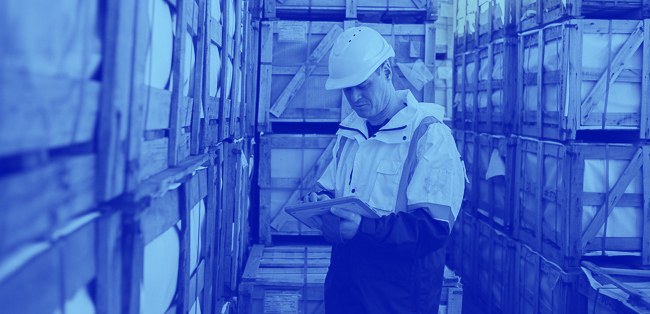
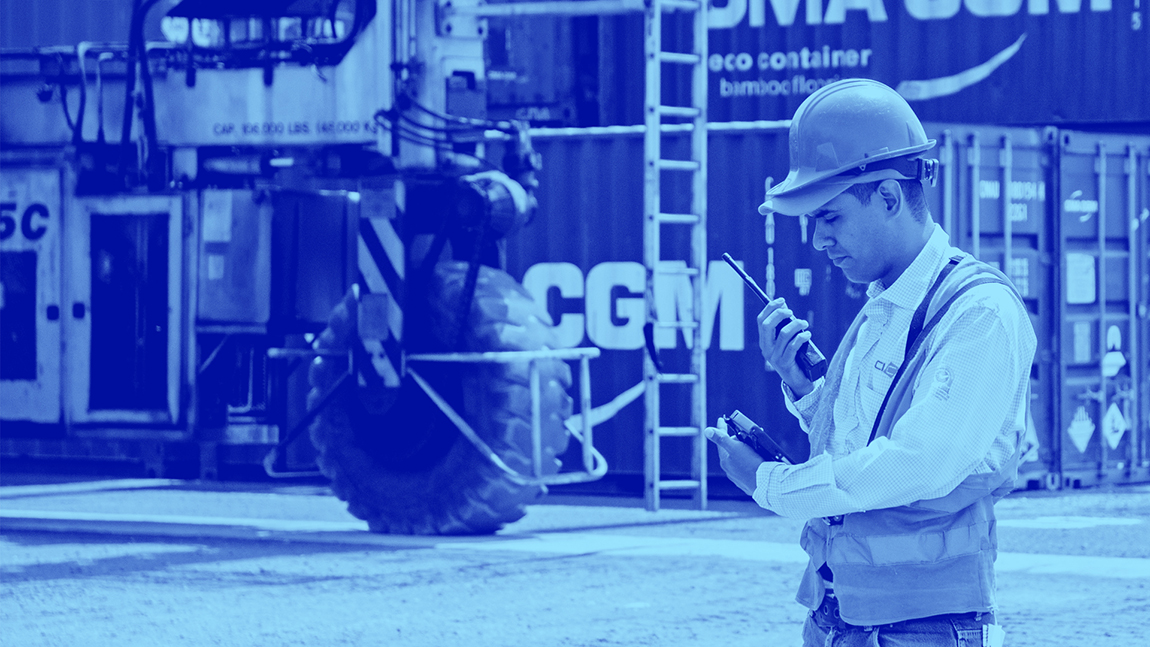
Traditionally a conservative bunch, Port Operators can’t argue the deafening demand for improved operations. Marco Neelsen, chief executive of Malaysia’s Port of Tanjung Pelepas (PTP) said at TOC Asia 2018: “It’s about how efficient you are, how quickly and how cost efficiently you can move the container from A to B.” [2]Ports that are brave enough to explore this digital world further, will benefit enormously, with even the smallest of steps forward.
A key part of the digital transformation driving smarter ports are mobile applications, or browser–based web apps, that complement your terminal operating system (TOS). These apps offer a user–friendly way to improve logistics management and cargo activities in real time, putting the power of information at your fingertips.
At Jade Logistics, we understand the importance of ensuring that technology is not a distraction, but a tool that allows users to be more efficient and ports to deliver better service to their customers. Our TOS, Master Terminal, is complemented by a Web Apps Suite that has been designed to make mobilizing your workforce a cost-effective solution that delivers real productivity and efficiency gains across your operation. These web apps support a ports’ deployment of TOS functionality at different levels and roles on the terminal, as well as providing choice with respect to compatible hardware devices. Automatic updates for the apps are provided in each release of Master Terminal and occur at the server level, eliminating the need for disruptive software upgrades and ensuring effortless maintenance.
Master Terminal’s comprehensive Web Apps Suite enable you to make informed business decisions using real-time data so that you can work smarter, not harder.
WEB PORTAL
Master Terminal Web Portal provides transparency of information to the wider supply chain, freeing up port staff to focus on core operational tasks. Offer your customers (including truckers, consignors, consignees, shipping companies, customs and government officials) access to selected Master Terminal functionality via a web browser. Empower your customers by providing access to real-time information about the status of their cargo and other relevant services.
VEHICLE BOOKING SYSTEM
Master Terminal’s Vehicle Booking System (VBS) allows you to easily manage the flow of vehicles throughout your gate operations. The VBS allows you to control vehicle arrival times to match your terminal’s work schedule, ensuring less downtime and congestion at the terminal gate. Schedule when transport operator vehicles can visit your terminal to evenly distribute the flow of vehicles throughout the hours of operation, and make better use of cargo handling machinery on the port.
VEHICLE APP
Increase driver productivity with the Master Terminal Vehicle app. Our vehicle app was designed with your drivers in mind, ensuring those at the coalface of the port are provided with real-time information that allows them to seamlessly perform their work. Featuring an intuitive and easy to navigate interface with large buttons, the vehicle app is user-friendly and quick to learn, regardless of the user’s technical ability.
HANDHELD APPS
Extend your TOS functionality with Master Terminal’s cost-effective Handheld apps. There is an ever increasing need for real-time information and fulfilment. For terminal operators this means operating as efficiently as possible and optimizing turnaround times. Master Terminal’s suite of handheld apps allow you to make informed business decisions with accurate up-to-the-minute information, provide real-time monitoring and reporting, reduced human error, and ultimately offer better customer service.
TALLYMAN
Master Terminal Tallyman accurately captures final cargo stowage on a vessel in real time, online and offline. Working with Roll-On/Roll-Off (RORO) and Lift-On/Lift-Off (LOLO) planning in Jade Logistics’ Master Terminal, Tallyman operates on modern devices (optimized for screens greater than 7”) and web browsers. Even when working out of range of your terminal network (e.g. the hold of a ship), Tallyman’s offline store and forward capability ensures all data is captured and recorded. Tallyman assists in creating a more complete picture of cargo transactions, enabling ports to operate more efficiently.
Ensure you are port smart with web apps that can help you reduce delays and cost, while increasing throughput and efficiencies. A digital transformation can help you better manage your resources and ensure you remain competitive. Secure and embrace your smarter future!
If you would like to learn more about our Web Apps Suite and how Master Terminal can help you get port smart, please contact us.
—–
[1] Navis Business Bellwether Report (Download BPI Network Study). (2018, November). Retrieved February 22, 2019, from http://www.bpinetwork.org/thought-leadership/studies/69
[2] Neelsen, M. (2018, June 7). Port Strategy | Digitalisation more important than automation. Retrieved February 22, 2019, from https://www.portstrategy.com/news101/port-operations/planning-and-design/digitalisation-more-important-than-automation
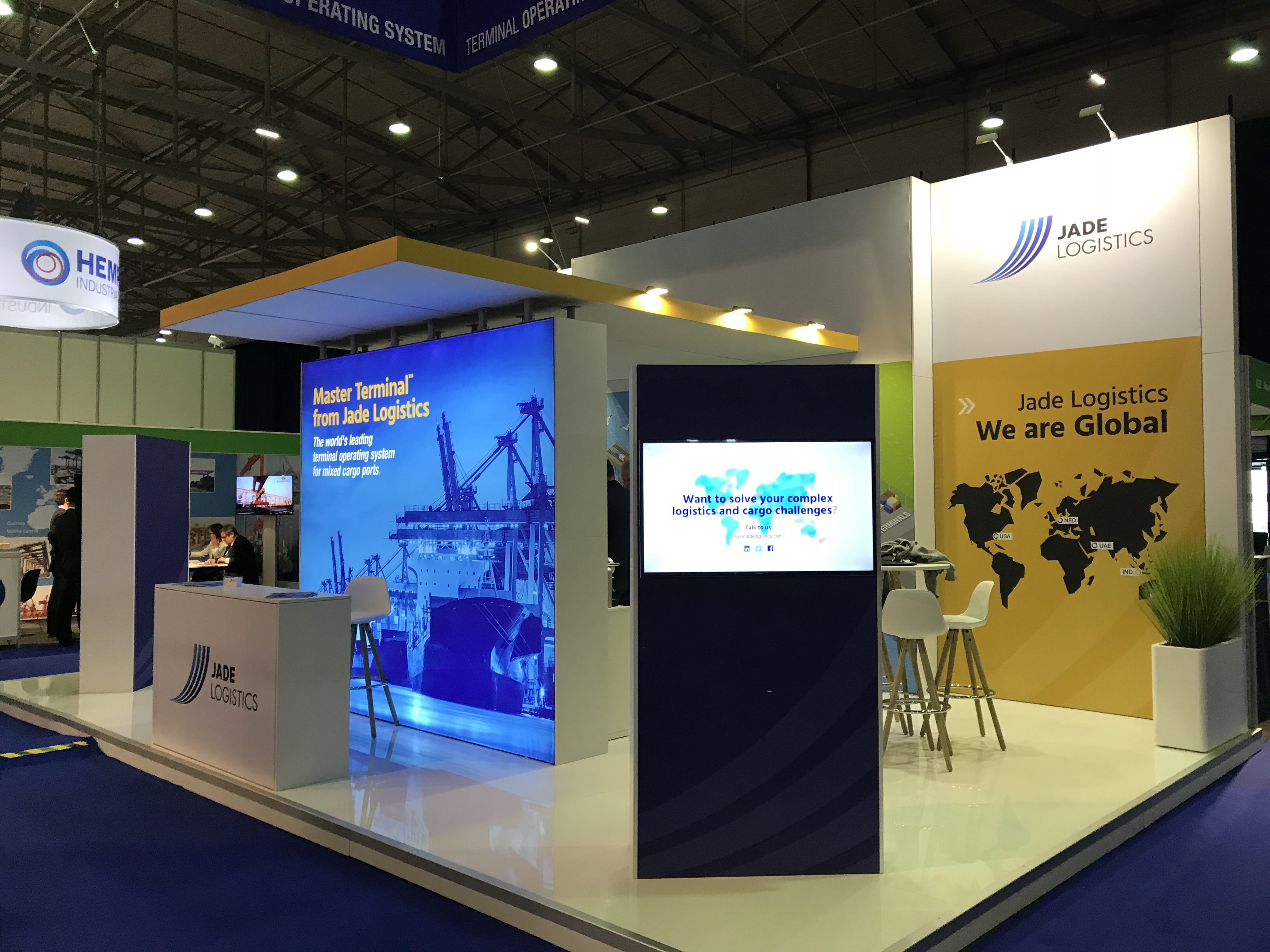
Jade Logistics recently attended TOC Asia 2019 in Singapore, where we showcased our terminal operating system, Master Terminal.
Automation, Digitization and Standardization were the themes at TOC Asia this year.
Running alongside the exhibition was the high-level industry conference, Tech TOC, where a range of topics were discussed and debated by industry experts. These sessions address challenges in the industry and present an opportunity for attendees to learn about trends in the future. This year’s focus was on how best to use technology to save money and time, with an emphasis on collaboration (digitally and otherwise) with customers, cargo owners and landside supply chain operators.
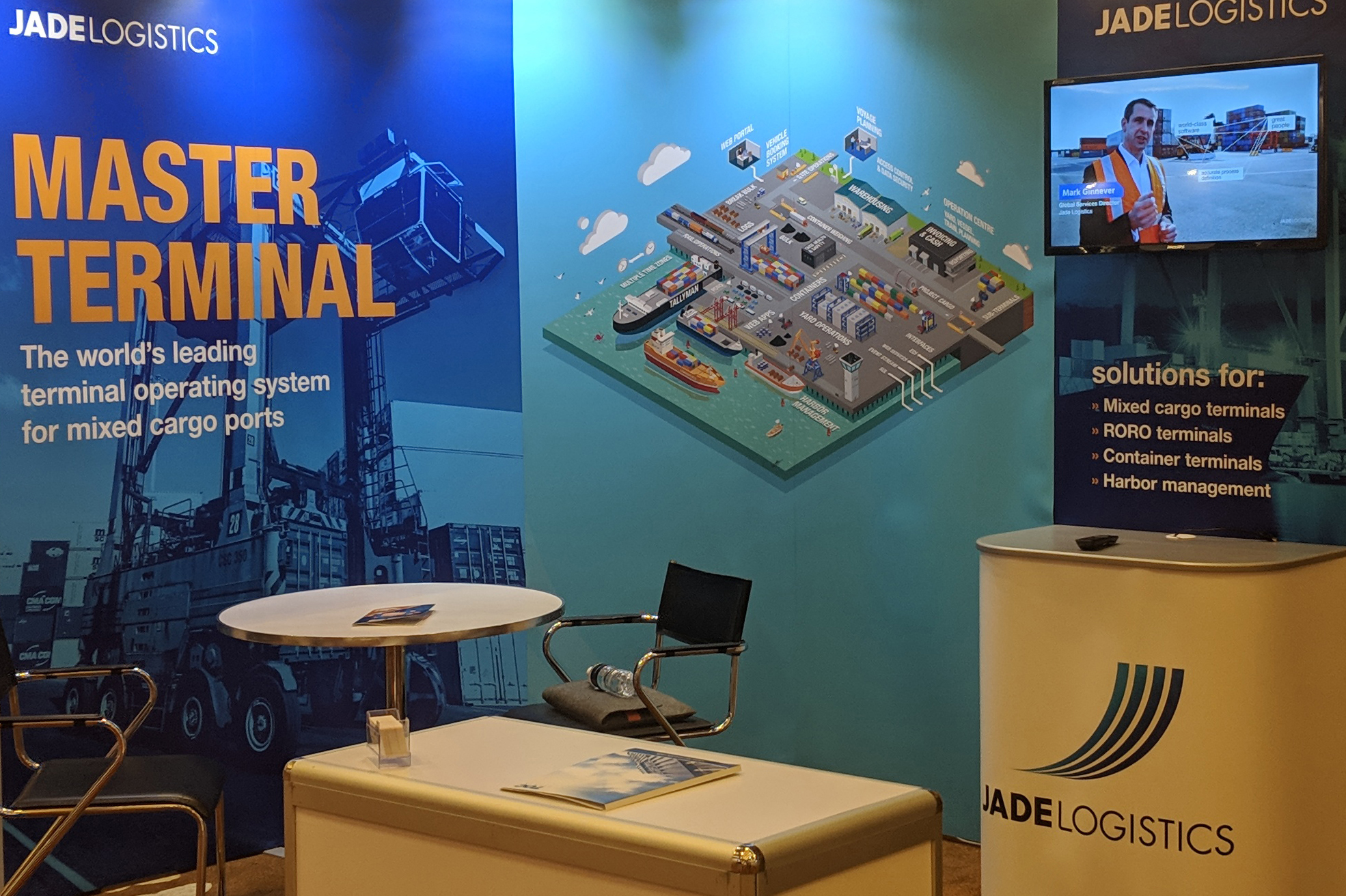
These themes continued through the conversations we had with visitors to our booth, where we discussed degrees of automation at a port, and how terminal operators can best take advantage of the technology options available without investing in expensive capital infrastructure.
Thank you to our users who came to see us, and to all new visitors to our booth – it was a pleasure to meet you. For those who did not get an opportunity to see us at TOC Asia, but would like to learn more about our terminal operating system (TOS), Master Terminal, we would like to extend an invitation to you to talk to us at info@jadelogistics-asia.com

Geneva-based CargoChain has developed a cargo information sharing platform that is focused on information sharing though the development of cost effective and rapidly deployable applications, including blockchain. CargoChain was formed out of Jade Logistics, but has been set up as and operates as a separate, independent company.

“CargoChain’s blockchain solution includes a unique Information Sharing Protocol and deep supply chain functionality that provides the ability to share any type of data, without the restrictions of legacy technology like EDI. The CargoChain Platform also provides tools that allow developers to build and deploy cost-effective applications that solve supply chain problems of any size,” the companies stated.
Tony Davis, Director of Marketing, Jade Logistics Group, explains that all rich cargo information is stored ‘off-chain’ on the CargoChain Platform. “Using Hyperledger Fabric technology, CargoChain stores a hash of all cargo events ‘on-chain’ to their own public blockchain. This approach mitigates the scalability challenges of blockchain when faced with large volumes of rich data, while at the same time providing complete trust in all the information that is stored on the CargoChain Platform.”
Guirec Le Bars, Chief Technology Officer at CargoChain is backing the company to revolutionise supply chain data sharing. “We believe the partnership will revolutionise the way cargo information is shared between global supply chain participants. It will enable the secure distribution of rich cargo information among trusted partners which has previously been unavailable, until now,” he said.
For Jade Logistics, increased collaboration and access to a common set of cargo information are crucial as the logistics industry seeks to drive greater efficiencies and productivity. “With Jade Logistics’ Master Terminal TOS in operation at over 125 terminals worldwide, Jade Logistics and CargoChain are well positioned to play a major role in this exciting new era of global logistics. Both companies will work closely with Jade Logistics’ existing Master Terminal customer base, and their business partners, to assist with their information sharing needs. Initial CargoChain applications are already in development for specific Master Terminal customers as well as pilots for significant supply chain projects.
“As independent players in the industry, Jade Logistics and CargoChain are committed to contributing to a democratised supply chain, that encourages across-the-board collaboration, seamless information sharing, and innovation,” Jade Logistics concluded.

Jade Logistics has announced a step into the blockchain area, through a partnership with Swiss-based platform provider CargoChain.
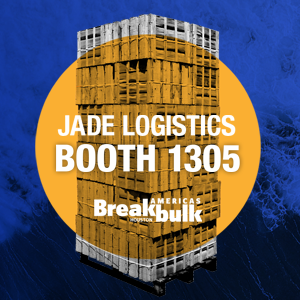
Breakbulk Americas 2018 is a fantastic event for the logistics industry, bringing together shippers and suppliers from around the world.
Jade Logistics are exhibiting at Breakbulk Americas from 2-4 October, 2018, in at the George Brown Convention Centre in Houston, Texas, USA.
You’ll find us at booth 1305, so make sure you stop by to meet the team and see the world’s leading terminal operating system—Master Terminal—for mixed cargo ports, in action. Discover how Master Terminal helps ports and terminal operators around the world manage their mixed cargo requirements, the easy way.
If you want to make sure you don’t miss a Master Terminal demonstration, please schedule a time with us here.
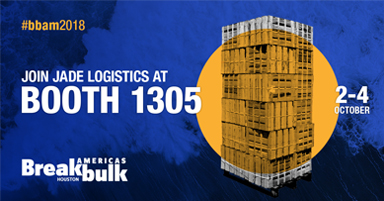
We look forward to seeing you there!
Kaustubh Dalvi, Keith McSwain and Jay Kronberg
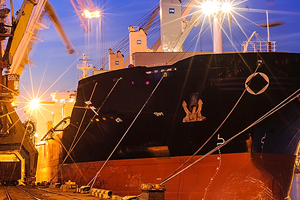
Jade Logistics has won a contract to install its Master Terminal TOS at 14 terminals in Indonesia operated by Pelindo I.

The contract is a major win for Jade Logistics, and its first in SE Asia. “PT Pelabuhan Indonesia I (Pelindo I) has selected the terminal operating system (TOS), Master Terminal, from Jade Logistics, to manage their mixed cargo operations at 14 terminals in the provinces of Nanggroe Aceh Darussalam (Aceh), Sumatera Utara (North Sumatra), Riau, and Riau Islands (Kepulauan Riau). Master Terminal will replace Pelindo I’s legacy systems and will help modernize and optimize their terminal operations,” Jade stated.
The roll out will take place in stages over an 18-month period. The first three terminals in the process of implementing Master Terminal are at the ports of Dumai, Sibolga, and Malahayati, and are set to go live by the third quarter of 2018, with the remaining terminals live by mid 2019.
With a large number of multi purpose terminals, Indonesia is a good fit for Jade’s multi-cargo TOS, which will support the 14 different terminals from a single instance of Master Terminal. After Jade Logistics was spun out from Jade Software Corporation (JSC) last year the company, led by CEO David Lindsay, has pursued an aggressive growth strategy that includes pushing into new markets. Before winning this contract it set up an office in Jakarta.
Commenting on winning the contract with Pelindo I, Jade said: “In support of the Indonesian Government’s Maritime port infrastructure upgrade program, dubbed the Indonesian-sea-toll-road program, Pelindo I (one of four Indonesian state-owned port operators) sought an integrated TOS that supported multiple cargo types and facilities to grow alongside the business. Master Terminal was a clear frontrunner, with a proven track record of handling a mixture of break-bulk, bulk, container and Roll-On/Roll-Off (RORO) cargo. Key functionality such as the ability to integrate with the Government Customs system, InaPortNet, and an SAP finance system, were features that won Pelindo I over”.
Pelindo I has a vision is to become the leading Port Business in Indonesia. “Investing in state-of-the- art technology, such as the Master Terminal application, supplemented with improved operational processes, training, and equipment, will ensure Pelindo I is in a position to handle current and future cargo volumes more efficiently and more cost-effectively,” Jade added.
“We are thrilled to partner with Pelindo I on this project,” remarked Lindsay. “The opportunities for them in this region are immense and we’re looking forward to seeing their coastal hubs, industry and economy grow. We’re excited to play a part in Indonesia’s greater expansion plans and seeing what the future holds.”

Jade Logistics has won a contract to install its Master Terminal TOS at 14 terminals in Indonesia operated by Pelindo I.
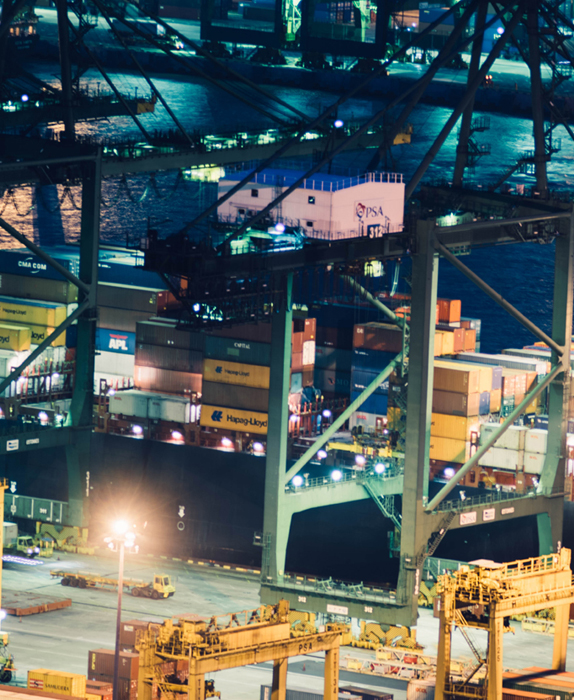
David Lindsay, CEO of Jade Logistics, recently spoke with WorldCargo News about how the company is looking to grow aggressively while targeting the multi-cargo terminal sector.